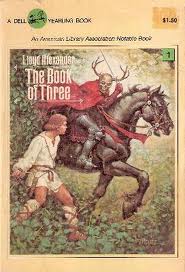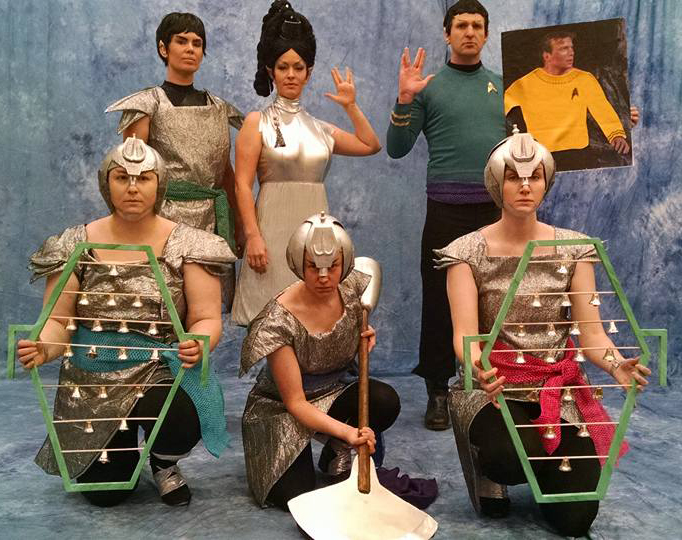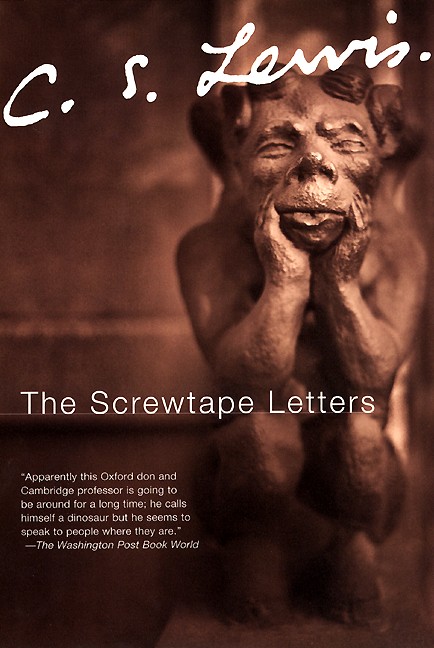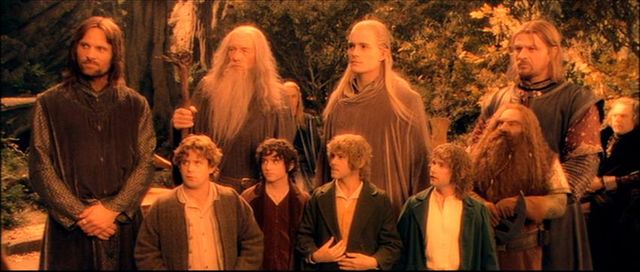Victory
Who wants to read about death, disability, disease, or defeat? Sure, we have stories that contain all those things, but the great thing about speculative literature is that it pits life, ability, strength, and victory against the things that ravage humanity—the things, as it happens, which are a result of sin in our world. The point is, we like the “good guys” to win. We want stories about triumph. We want to read about overcoming. We want victory!
Speculative fiction, by its nature, pits good versus evil. Though darkness has its day, in the end, good triumphs. The White Witch may turn many animals to stone, she may even appear to defeat Aslan, but in the end, he wins.
Though the forces of Mordor may appear to be overwhelming in numbers and strength, there’s still a hobbit climbing the side of Mount Doom with a ring he intends to destroy.
Though Voldomort may seem as if he’s back in control, there’s still a boy willing to sacrifice himself to destroy the last piece of the evil ruler’s soul.
Victory. That’s what speculative fiction is really all about. We don’t want to see Spiderman fail. We don’t want to see Superman succumb to kryptonite. We want the hero to be heroic; we want him to save the day. We long for life in Hobbiion, away from orcs and Sauron and dragons and mad kings and lurking spiders and selfish, twisted creatures that pit themselves against us. We long for freedom from the power of the corrupt and enticing ring.
Speculative stories don’t simply promise victory, They show it.
 Or most do. Even the more obscure ones that not so many people have heard of. There’s a classic five-book children’s series called The Chronicles of Prydain by Lloyd Alexander that illustrates this point. The first book entitled The Book Of Three (see Wikipedia for the plot summary) introduces Taran, an Assistant Pig Keeper. He wants, above all else, to be a hero. And we readers want him to be a hero. But Taran seems all too familiar—wanting to do what’s right but ending up, more often than not, as a victim. Sometimes a victim of his own best intentions. In the long run, though, victory awaits, not the victory we supposed, but a victory brought about by his kindness and compassion. And now a victory that immediately gave him hero status—that has to wait for a later book.
Or most do. Even the more obscure ones that not so many people have heard of. There’s a classic five-book children’s series called The Chronicles of Prydain by Lloyd Alexander that illustrates this point. The first book entitled The Book Of Three (see Wikipedia for the plot summary) introduces Taran, an Assistant Pig Keeper. He wants, above all else, to be a hero. And we readers want him to be a hero. But Taran seems all too familiar—wanting to do what’s right but ending up, more often than not, as a victim. Sometimes a victim of his own best intentions. In the long run, though, victory awaits, not the victory we supposed, but a victory brought about by his kindness and compassion. And now a victory that immediately gave him hero status—that has to wait for a later book.
But victory is very much a part of the story—victory over Taran’s dissatisfaction with an ordinary life as much as victory over the forces of evil.
Of course there are twists. Twilight introduced a character who’s victory is tied to his triumph over his own desires. More than a century earlier, Robert Louis Stevenson wrote The Strange Case of Dr. Jekyll and Mr. Hyde which brings to bear the struggle of good and evil within the life of an individual.
The Hunger Games series seems to approach good and evil from a different point—not so much as a personal struggle but as a societal issue. For a time President Snow seems to be the embodiment of evil, but he’s not. The revolution in the hands of the new president, Alma Coin, and the war they are conducting are just as evil. Katniss is both hero and victim. She’s a winner with an asterisk next to her name. Things are better, but . . .
 The Divergent series by Veronica Roth also had a twist. In that instance, victory wasn’t for the main character. Tris died in the end. The victory was what she won for everyone else.
The Divergent series by Veronica Roth also had a twist. In that instance, victory wasn’t for the main character. Tris died in the end. The victory was what she won for everyone else.
All this winning, over personal evil, societal evil, evil forces, is little more than a mirror of the real world. Because of sin, we much deal with the spiritual enemy of our souls, the sin within our own hearts, and the sin in our world. As a result we strive, day in and day out, against some form of evil. And we long for victory. We hope for victory. We have faith that one day we will live in victory.
Speculative fiction simply reminds us of what we hope for.








































 The struggle is real.
The struggle is real.
 I think of Joshua and his jealousy for Moses when God put a portion of His Spirit on the 70 designated elders in the camp of the Israelites. Moses was overwhelmed by the demands of the thousands of people, so God had him select these leaders to share the burden. When they received the Holy Spirit, they prophesied. Two were in the camp and Joshua was one who heard them also prophesy. He went to Moses and told him to have those elders stop prophesying. Why? Scripture says he was jealous for Moses.
I think of Joshua and his jealousy for Moses when God put a portion of His Spirit on the 70 designated elders in the camp of the Israelites. Moses was overwhelmed by the demands of the thousands of people, so God had him select these leaders to share the burden. When they received the Holy Spirit, they prophesied. Two were in the camp and Joshua was one who heard them also prophesy. He went to Moses and told him to have those elders stop prophesying. Why? Scripture says he was jealous for Moses.  David didn’t kill Goliath so he would become well-known throughout Israel. Daniel didn’t pray when it was against the law to do so because he wanted a children’s song written about him (“Dare to be a Daniel . . .”), Gideon didn’t go to battle with only 300 soldiers because he wanted to make the pages of Scripture. No. In each instance, obedience was what motivated these people. They wanted to do what God told them to do. In all three of these particular instances, adversarial confrontation preceded their fame. But they held their ground, put obeying God above all else, and didn’t really care who knew or who wanted to know them as a result of their actions.
David didn’t kill Goliath so he would become well-known throughout Israel. Daniel didn’t pray when it was against the law to do so because he wanted a children’s song written about him (“Dare to be a Daniel . . .”), Gideon didn’t go to battle with only 300 soldiers because he wanted to make the pages of Scripture. No. In each instance, obedience was what motivated these people. They wanted to do what God told them to do. In all three of these particular instances, adversarial confrontation preceded their fame. But they held their ground, put obeying God above all else, and didn’t really care who knew or who wanted to know them as a result of their actions. 








 promises are made (of course!) in the interest of profit; if they get us to believe, they get us to buy. But once we believe and buy, they end up bound to their brands. The power of brand is a conservative force and resists change â including from readers and writers wanting something new in Christian publishing. (Incidentally, that is a preview. We will end at Christian publishing, but weâre taking the long way around, like they did before the Federal Highway-Aid Act.)
promises are made (of course!) in the interest of profit; if they get us to believe, they get us to buy. But once we believe and buy, they end up bound to their brands. The power of brand is a conservative force and resists change â including from readers and writers wanting something new in Christian publishing. (Incidentally, that is a preview. We will end at Christian publishing, but weâre taking the long way around, like they did before the Federal Highway-Aid Act.)
 Those words, spoken by Gandalf at the end of Return of the King, poignantly convey something we all have and will feel. The dual joy and pain of having close friendships. This thing called friendship is a beautiful, breathtaking reality that sometimes we take for granted.
Those words, spoken by Gandalf at the end of Return of the King, poignantly convey something we all have and will feel. The dual joy and pain of having close friendships. This thing called friendship is a beautiful, breathtaking reality that sometimes we take for granted.





